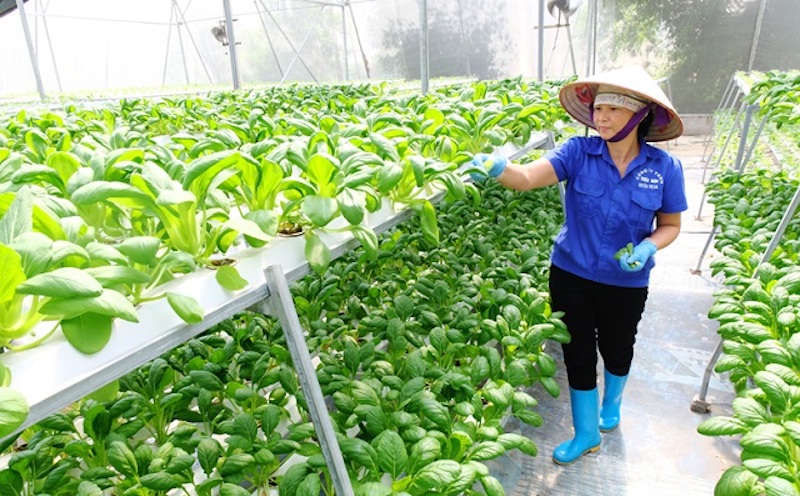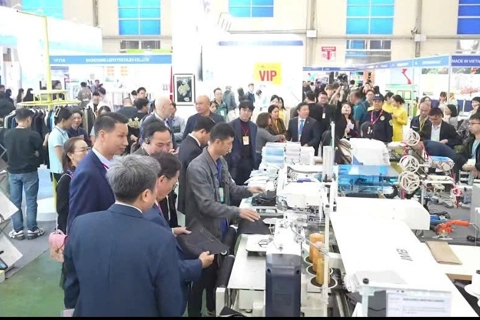Supply chain helps stabilize agricultural production in Hanoi
The supply chains have ensured the quality of agricultural products to consumers in Hanoi amid the Covid-19 pandemic.
Agricultural commodity production and consumption chains have been playing a key role, not only for the survival of businesses but also in the supply of food and necessities for Hanoians amid the increasingly serious evolution of the Covid-19 pandemic.
Nguyen Van Chi, director of the Hanoi Rural Development Sub-Department under the municipal Department of Agriculture and Rural Development, said that the capital city has set up 141 chains to link the production and consumption of agricultural products.
"These chains hey not only help to increase economic value by 15-20%, but also contribute to raising income for farmers.
“Consumers also benefit from the fact that agricultural products have clear origins, with good quality and safety. Especially, in the current complicated situation of the Covid-19 pandemic, this is very important in stabilizing the supply of food," Chi told The Hanoi Times.
A vegetable orchard in Hanoi's outskirt district of Soc Son. Photo: Ngoc Anh |
Deputy Director of the Hanoi Department of Agriculture and Rural Development Nguyen Ngoc Son said that the supply chains have ensured the quality of agricultural products to consumers in the capital city.
To support the suppliers participating in the chain, Hanoi has been actively implementing the Vietnamese Government's Decree No. 98/ND-CP to encourage cooperation and association in producing and consuming agricultural products. The decree focuses on mechanisms and policies to support pre-processing, processing, branding, and traceability for agricultural products, Son said.
“Hanoi's agricultural sector has been creating favorable conditions for localities to accelerate the transformation of agricultural economic models towards concentrated farming, thereby forming a large commodity supply chain,” Son told The Hanoi Times.
Besides, Hanoi has cooperated with localities to supervise the consumption of domestic agricultural products, Son emphasized, adding that his department will continue to strengthen the chain between Hanoi and other provinces and cities in the country to promote the consumption of agricultural products in the time ahead.
In 2020, Hanoi’s agricultural sector still achieved a growth rate of 4.2% despite potential risks of African swine fever and avian flu, and unusual weather phenomena, according to a report by the municipal Department of Agriculture and Rural Development.
Specifically, the city’s total production value of agro-forestry-fishery in 2020 rose by 4.5% against the same period of 2019 to VND38.1 trillion (US$1.67 billion).
The production structure has changed in a timely manner, of which cultivation and forestry accounted for 41.55%; livestock and fisheries 56.22%, and service 2.23%, the report said.
It highlighted the city’s 164 high-tech farm production models and 141 food safety chains with heavy investments of businesses, cooperatives, and farmer households.











